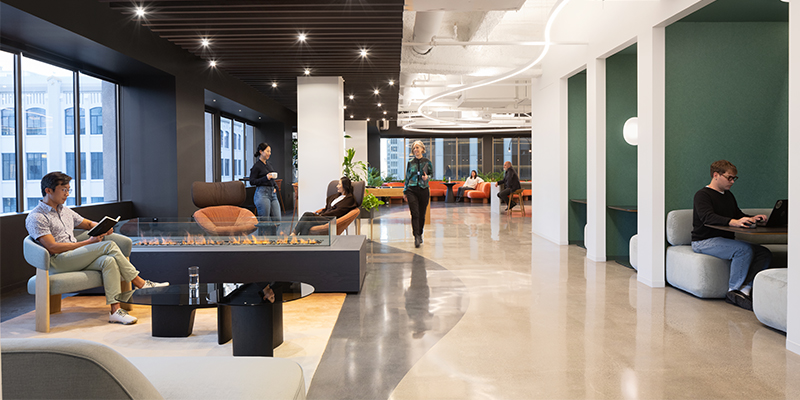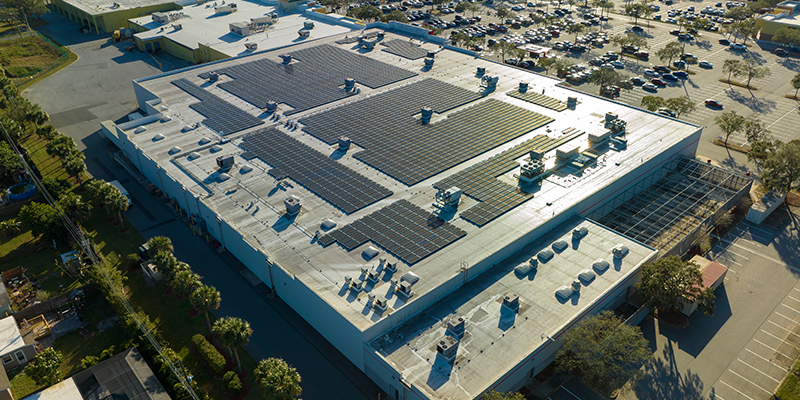By Brielle Scott
David Greek and Matt Schlindwein, managing partners with Greek Real Estate Partners, joined NAIOP’s Inside CRE podcast recently to offer their takes on today’s investment climate, the headwinds shaping logistics real estate, how developers are adapting to higher costs and political pressures, and how their NAIOP involvement has shaped their careers.
Below, a few takeaways from the two industry leaders.
1. Industrial Real Estate Holds Steady Amid Market Weakness
Despite broader capital market softness, industrial assets remain a top-tier investment class, closely rivaling multifamily. However, institutional appetite has shifted toward value-add acquisitions and existing assets, especially those priced below replacement cost. Speculative development, particularly large-scale projects, faces headwinds due to lingering vacancy rates and risk-averse capital.
2. Small-bay Warehouses Are Gaining Favor
Greek emphasized the growing appeal of small-bay, multitenant industrial spaces, which offer long-term stability and reduced single-tenant risk. Historically overlooked due to higher management demands, these assets are now attracting institutional interest thanks to consistent leasing performance and resilience against global economic disruptions.
3. Interest Rate Clarity Encourages Risk-taking
While higher interest rates have impacted valuations, much of that adjustment has already been priced in. The recent rate cuts have introduced greater certainty, enabling investors to plan more confidently and potentially re-enter the development space. As Schlindwein noted, declining rates could justify tighter spreads and more aggressive investment strategies.
4. Development Pipeline Faces Delays, but Opportunity Looms
New construction starts are down, with many entitled projects sidelined in a “wait-and-see” mode. Once demand rebounds, these projects could quickly come online, followed by a supply gap due to the lack of new entitlements. In markets like New Jersey, where entitlements are notoriously slow, this lag could soon create pricing power for landlords .
5. Regulatory Bottlenecks and Political Pressure Are Growing
Both guests highlighted increasing frustration with regulatory delays and political opposition to development. Greek pointed to instances in New Jersey where local resistance has led to questionable legislative efforts to block projects. Schlindwein advocated for private-sector solutions, such as accredited third-party reviewers, to accelerate approvals and maintain momentum.
6. Design and Community Integration Matter More Than Ever
Developers are adapting to changing workforce dynamics by designing industrial spaces that are more welcoming and community friendly. Features like daylighting, outdoor gathering areas, and walkable site layouts are becoming standard, especially in redevelopment zones. These thoughtful design choices are helping attract tenants who might not traditionally consider warehouse space.
7. Flexible Deal Structures and Diverse Partnerships Are Key
Greek emphasized the importance of creative contract structures and maintaining a diverse investor base. With no centralized fund, Greek Real Estate Partners tailors each project’s capital stack to match market conditions and investor appetite. This flexibility allows them to pivot between asset types and stay active where capital is flowing.
8. NAIOP: A Catalyst for Growth and Collaboration
Schlindwein credited his involvement with NAIOP – both locally and across NAIOP Corporate’s offerings – as a major driver of his professional development and access to deal-making. The National Forums program, he said, fosters education, networking and collaboration, enabling members to share best practices and form lasting partnerships. As he noted, “members want to do business with each other,” and that spirit of openness benefits the entire industry.
The industrial real estate sector is navigating a complex environment, but with strategic adaptability, thoughtful design, and collaborative partnerships, developers and investors are well-positioned to capitalize on emerging opportunities.








